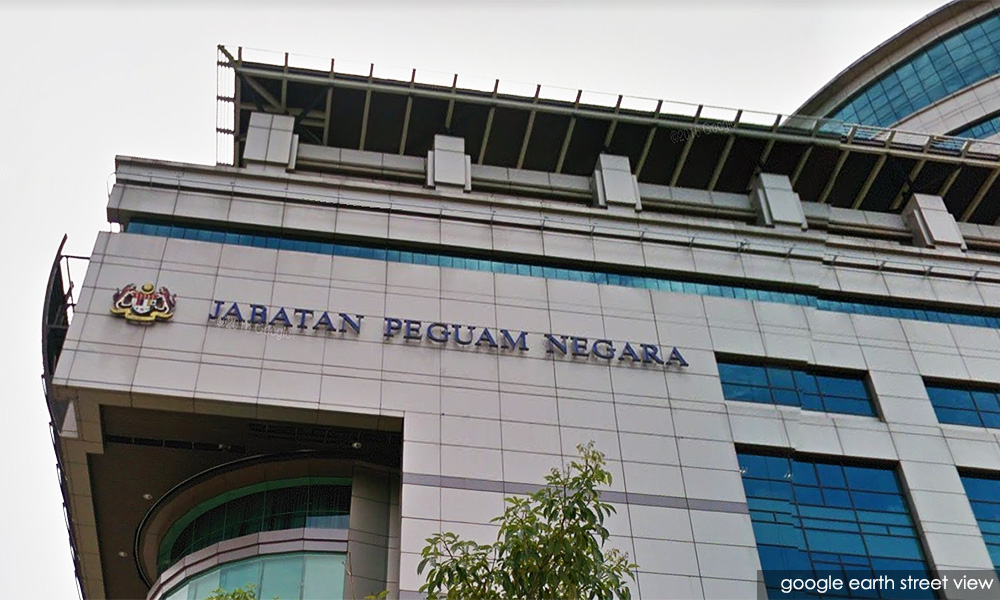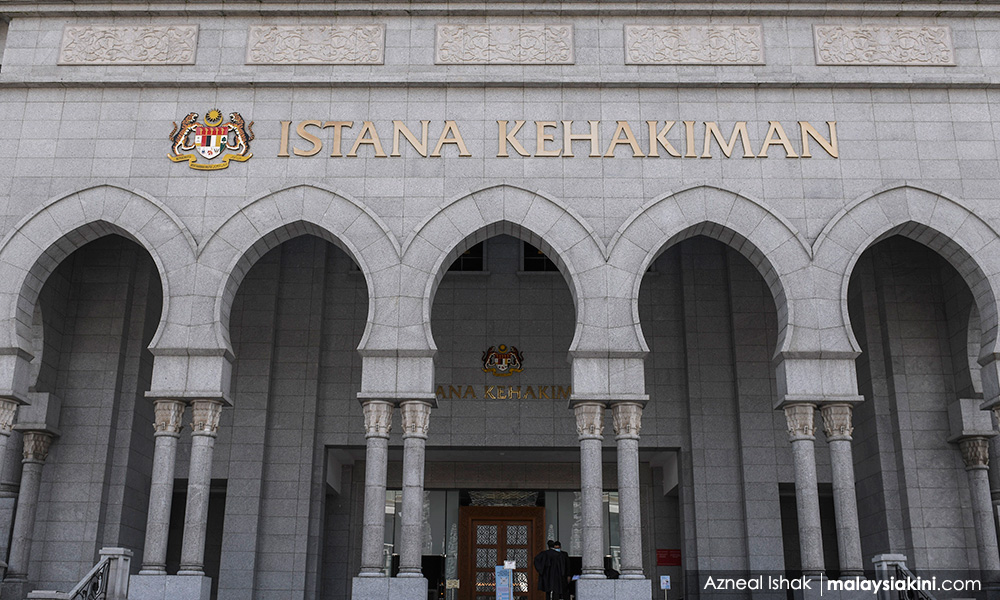
Mohamed Hanipa Maidin
Published: Aug 19, 2024 12:38 PM
COMMENT | It is fair and reasonable for lawyer N Surendran to question the police’s action and the Attorney-General’s Chambers’ (AGC) perceived lack of action in the case of a police officer caught on camera assaulting a deaf e-hailing driver.
It has been reported that the alleged officer is being probed under Section 323 of the Penal Code for causing voluntary hurt.
Inspector-General of Police Razarudin Husain told the media that police had first submitted an investigation paper (IP) to the AGC in June but the same was sent back to the police for further probes.
We know that in May, driver Ong Ing Keong lodged a report alleging that a police personnel escorting Johor Regent Tunku Ismail Sultan Ibrahim had assaulted him outside a hotel in Kuala Lumpur.
Making it airtight?
To be fair to the AGC, there is nothing unusual for it to return the IP to the police due to a slew of reasons, such as when it finds that the investigations are shrouded by a whole raft of infirmities. Or the police may have to dot the “i”s and cross the “t”s in its investigation.

There are many court judgments in which the judges have no other option but to acquit the accused due to shoddy police investigations. Perhaps the AGC may not want to prosecute the alleged offender in this case unless the quality of the probe, in its view, is really tip-top.
As far as criminal law is concerned, any investigations or even prosecutions of any criminal offence under Section 323 of the Penal Code are viewed as relatively simple cases to begin with.
Be that as it may, when there has been no prosecution of the alleged culprit since the assault took place, it is definitely a source of concern to any thinking Malaysian.
Perhaps the alleged offence is only treated as a petty crime. Nevertheless, when a crime is inflicted upon any disabled person, it should never be considered a small and insignificant crime.
When a government fails to duly protect and safeguard disabled communities, it is not fit to be called a government, let alone a Madani government.
While I strongly believe the AGC will ultimately charge the alleged culprit, the delay in prosecuting any criminal offence being committed against a disabled person may send a wrong message to the AGC, and possibly to the Madani government too, which has been vocal in promising to the whole world that it seeks to champion the rule of law.
Disciplined but for something else
There is, to our frustration, another element of this case which is disturbing too. At the outset, we got the impression from the IGP’s statement that the alleged offender was duly disciplined internally.

Inspector-General of Police Razarudin Husain
In the absence of any criminal charge against the alleged offender, we were a bit elated to learn that the alleged offender had been subjected to internal disciplinary action.
Yet, the IGP dropped another startling bombshell. When contacted, the IGP clarified with Malaysiakini that the disciplinary action was not over the assault case but for the police personnel’s failure to declare his assets.
The IGP said the failure to declare assets was a breach of the Standing Orders of the Inspector-General of Police and the relevant officer was already given a warning.
With the greatest respect to the IGP, he was definitely wrong or confused when he remarked: “If we continue with an internal investigation for the same assault case (on top of the criminal probe), it will be double jeopardy.”
No double jeopardy here
It seems to me the IGP harbours a feeble understanding of the principle of double jeopardy. One does not need to earn a law degree to know that both the assault case and the failure to declare assets are poles apart.
The principle of double jeopardy plainly does not apply in this case. Under constitutional law, the prohibition against “double jeopardy” was designed to protect an individual from being subjected to the hazards of trial and possible conviction more than once for an alleged offence.
The doctrine of double jeopardy is deeply ingrained in the Anglo-American system of jurisprudence.
In the absence of any criminal charge against the alleged offender, we were a bit elated to learn that the alleged offender had been subjected to internal disciplinary action.
Yet, the IGP dropped another startling bombshell. When contacted, the IGP clarified with Malaysiakini that the disciplinary action was not over the assault case but for the police personnel’s failure to declare his assets.
The IGP said the failure to declare assets was a breach of the Standing Orders of the Inspector-General of Police and the relevant officer was already given a warning.
With the greatest respect to the IGP, he was definitely wrong or confused when he remarked: “If we continue with an internal investigation for the same assault case (on top of the criminal probe), it will be double jeopardy.”
No double jeopardy here
It seems to me the IGP harbours a feeble understanding of the principle of double jeopardy. One does not need to earn a law degree to know that both the assault case and the failure to declare assets are poles apart.
The principle of double jeopardy plainly does not apply in this case. Under constitutional law, the prohibition against “double jeopardy” was designed to protect an individual from being subjected to the hazards of trial and possible conviction more than once for an alleged offence.
The doctrine of double jeopardy is deeply ingrained in the Anglo-American system of jurisprudence.

Therefore, the state with all its resources and power is not licensed to make repeated attempts to convict an individual for an alleged offence, thereby subjecting him to embarrassment, expense and ordeal, and compelling him to live in a continuing state of anxiety and insecurity, as well as enhancing the possibility that even though innocent he may be found guilty subsequently.
In Malaysia, the rule of double jeopardy is expressly enshrined in Article 7 (2) of our apex law, which reads “A person who has been acquitted or convicted of an offence shall not be tried again for the same offence except where the conviction or acquittal has been quashed and a retrial ordered by a court superior to that by which he was acquitted or convicted.”
Is something really amiss about this rather straightforward case? May common sense prevail.
MOHAMED HANIPA MAIDIN is a former deputy minister in the Prime Minister’s Department.
No comments:
Post a Comment